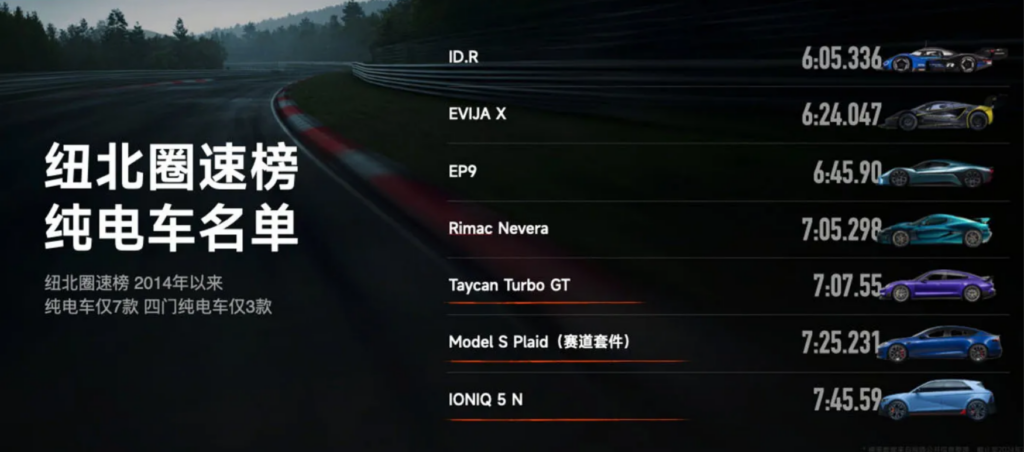In an impressive display of engineering prowess, Xiaomi Automobile has recently introduced a tri-motor prototype version of its flagship SU7 EV. Dubbed the SU7 Ultra, this high-performance BEV is set to transition into a production model while retaining nearly all its current components. Before hitting the market, the 1,548hp beast aims to break records at the world-renowned Nürburgring.
Xiaomi’s Swift Rise in the Automotive Sector
Founded in September 2021, Xiaomi’s automotive division has rapidly established itself in the industry. The tech giant, better known for its smartphones, launched its first BEV model, the SU7, in late 2023. The model received widespread acclaim, with over 50,000 orders placed within the first 27 minutes of sales, propelling Xiaomi’s market value by $4 billion.

Initially, Xiaomi planned to produce 60,000 units of the SU7 in 2024. However, due to overwhelming demand, the company has decided to increase production. In just 32 days, 10,000 SU7 models rolled off the assembly line, a testament to Xiaomi’s efficient manufacturing capabilities. The SU7 is available in three variants: Standard, Pro, and Max, priced at RMB 215,900 ($29,675), RMB 245,900 ($33,800), and RMB 299,900 ($41,225), respectively.
Introducing the SU7 Ultra
The latest addition to the SU7 lineup, the SU7 Ultra, features a tri-motor setup that propels the car from 0 to 100 km/h (0 to 62 mph) in a blistering 1.97 seconds, with a top speed of 350 km/h (217 mph). This prototype aims to set new records as the “world’s fastest four-door vehicle.”
Xiaomi’s CEO, Lei Jun, confirmed that a production version of the SU7 Ultra is slated for release in the first half of 2025. While the prototype’s all-carbon fiber body will be replaced in the production model to reduce costs, most of its advanced technology will be retained. This includes three V8 electric motors and an 800V architecture powered by CATL’s Qilin II batteries, capable of recharging from 0 to 100% in just twelve minutes.

The production version will weigh more than the prototype’s 1,900 kg (4,189 lbs) due to the reduction in carbon fiber use. For comparison, the standard SU7 weighs 1,980 kg, while the Pro and Max variants weigh 2,205 kg.
The Road Ahead: Nürburgring and Beyond
All eyes are now on the Nürburgring, where the SU7 Ultra prototype will attempt to cement its status as one of the fastest BEVs. This event is set for October, and expectations are high.
In terms of pricing, Lei Jun indicated that the production version of the SU7 Ultra will be slightly more expensive than the current variants, though not by a significant margin.
As Xiaomi continues to produce another 10,000 SU7 units in July, bringing the total to 20,000 in the first two months of full-fledged production, the company’s rapid progress in the automotive sector is evident. The SU7 Ultra’s performance at Nürburgring will be a crucial milestone, potentially setting the stage for Xiaomi’s dominance in the high-performance EV market.

Xiaomi’s ambitious foray into the automotive industry showcases its commitment to innovation and excellence. With the upcoming production version of the SU7 Ultra and its anticipated performance at Nürburgring, Xiaomi is poised to become a significant player in the electric vehicle market





